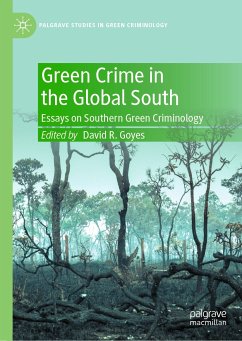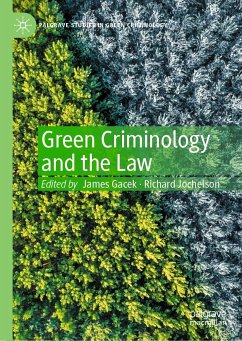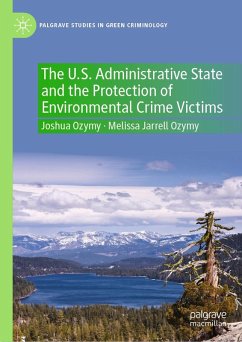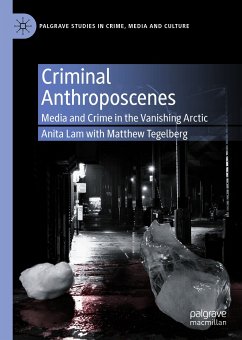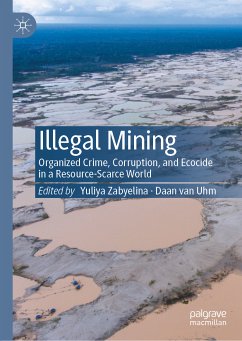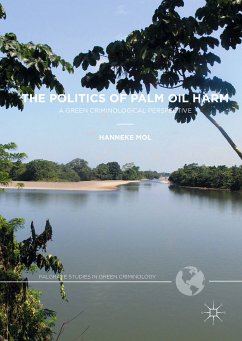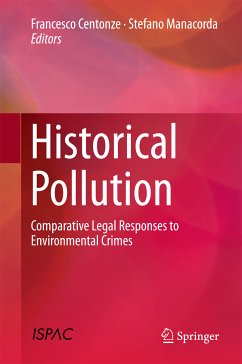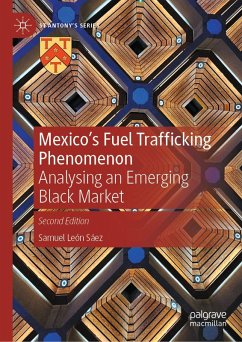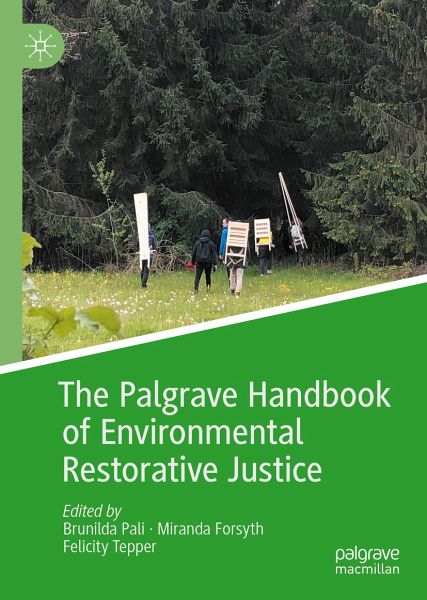
The Palgrave Handbook of Environmental Restorative Justice (eBook, PDF)
Versandkostenfrei!
Sofort per Download lieferbar
112,95 €
inkl. MwSt.
Weitere Ausgaben:

PAYBACK Punkte
56 °P sammeln!
This handbook explores the dynamic new field of Environmental Restorative Justice. Authors from diverse disciplines discuss how principles and practices of restorative justice can be used to address the threats and harms facing the environment today. The book covers a wide variety of subjects, from theoretical discussions about how to incorporate the voice of future generations, nature, and more-than-human animals and plants in processes of justice and repair, through to detailed descriptions of actual practices of Environmental Restorative Justice. The case studies explored in the volume are ...
This handbook explores the dynamic new field of Environmental Restorative Justice. Authors from diverse disciplines discuss how principles and practices of restorative justice can be used to address the threats and harms facing the environment today. The book covers a wide variety of subjects, from theoretical discussions about how to incorporate the voice of future generations, nature, and more-than-human animals and plants in processes of justice and repair, through to detailed descriptions of actual practices of Environmental Restorative Justice. The case studies explored in the volume are situated in a wide range of countries and in the context of varied forms of environmental harm - from small local pollution incidents, to endemic ongoing issues such as wildlife poaching, to cataclysmic environmental catastrophes resulting in cascades of harm to entire ecosystems. Throughout, it reveals how the relational and caring character of a restorative ethos can be conducive to finding solutions to problems through sharing stories, listening, healing, and holding people and organisations accountable for prevention and repairing of harm. It speaks to scholars in Criminology, Sociology, Law, and Environmental Justice and to practitioners, policy-makers, think-tanks and activists interested in the environment.
Dieser Download kann aus rechtlichen Gründen nur mit Rechnungsadresse in A, B, BG, CY, CZ, D, DK, EW, E, FIN, F, GR, HR, H, IRL, I, LT, L, LR, M, NL, PL, P, R, S, SLO, SK ausgeliefert werden.




